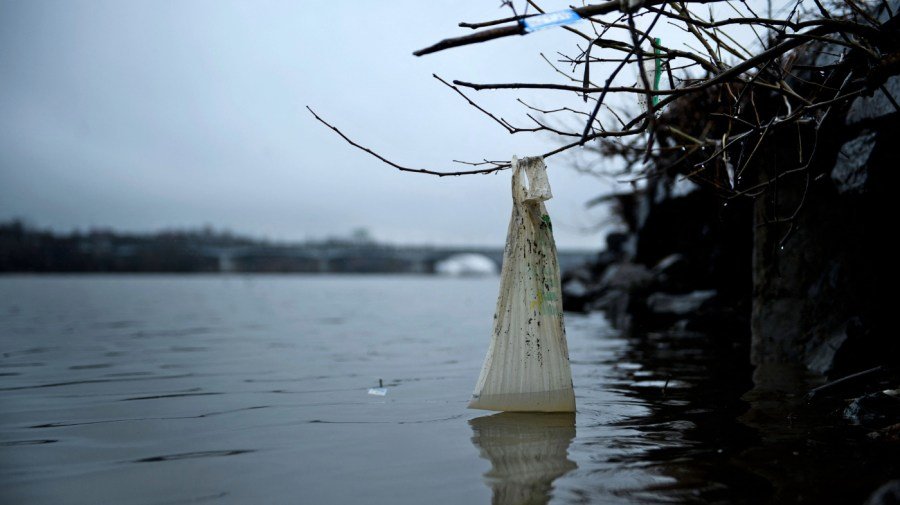
Policies that have banned or imposed fees on plastic bags are leading to significant declines in plastic litter along U.S. shorelines, a new study has found.
These state- and local-level regulations have brought about a 25 percent to 47 percent plunge in the proportion of bags in total coastal littler cleanups, in comparison to places that lack such rules, according to the study, published Thursday in Science.
“There are so many pathways a bag can take from the checkout line at the store,” said senior author Kimberly Oremus, an associate professor in marine science at the University of Delaware, in a statement.
“It’s great to see a policy that works in such a clearly measurable way,” Oremus added.
Thin plastic shopping bags are one of the biggest culprits of plastic pollution on coastlines, as they have low recycling rates and often blow away in the wind — entangling animals and breaking down into harmful microplastics, the study authors noted.
But as awareness around this issue has grown, more than 100 nations have implemented either bans or fees on the bags, the researchers explained.
Oremus and the lead author, environmental economist Anna Papp, sought to gauge the effectiveness of such policies in jurisdictions across the United States.
To do so, they combed through data of 45,067 shoreline cleanups available through an app called Clean Swell, which feeds into the Ocean Conservancy’s Trash Information and Data for Education Solutions database.
The researchers also examined 611 plastic bag policies enacted between 2017 and 2023 — investigating how these regulations have helped reduce plastic litter and comparing the effects of rules enacted at the town, county and state level.
Not only did they find that the policies have led to 25 percent to 47 percent reductions in the share of plastic bags in coastal litter, but they also identified that this decrease surges in magnitude over time. Areas with bag rules also demonstrated a 30 percent to 37 percent reduction in the presence of entangled animals, although the authors noted that these results were imprecise.
The researchers identified more robust impacts from state-level policies in comparison to town-level rules, with fees decreasing litter even more so than bans. They acknowledged, however, that more research would be necessary to understand those discrepancies.
Also of interest to the authors was a finding that bag bans and fees were most effective in places where bag little was more severe to begin with.
“Overall, our findings do show that plastic bag policies are broadly effective in limiting litter along shorelines,” said Papp, who earned her Ph.D. in sustainable development from Columbia University.
“But it is important to keep in mind that this is a relative decrease in affected areas compared to areas without policies,” Papp added.
Going forward, the authors stressed the importance of recognizing that plastic pollution in general is still growing, and that plastic bag policies can only reduce some associated impacts.
With the United Nations Environment Program set to announce a new round of negotiations on an international plastic treaty this August, the researchers expressed hope for a more comprehensive solution to this problem.
“We’re still getting more plastic bags on shorelines as a percentage of all the cleanup items over time,” Oremus said. “It’s not eliminating the problem, it’s just making it grow more slowly.”


